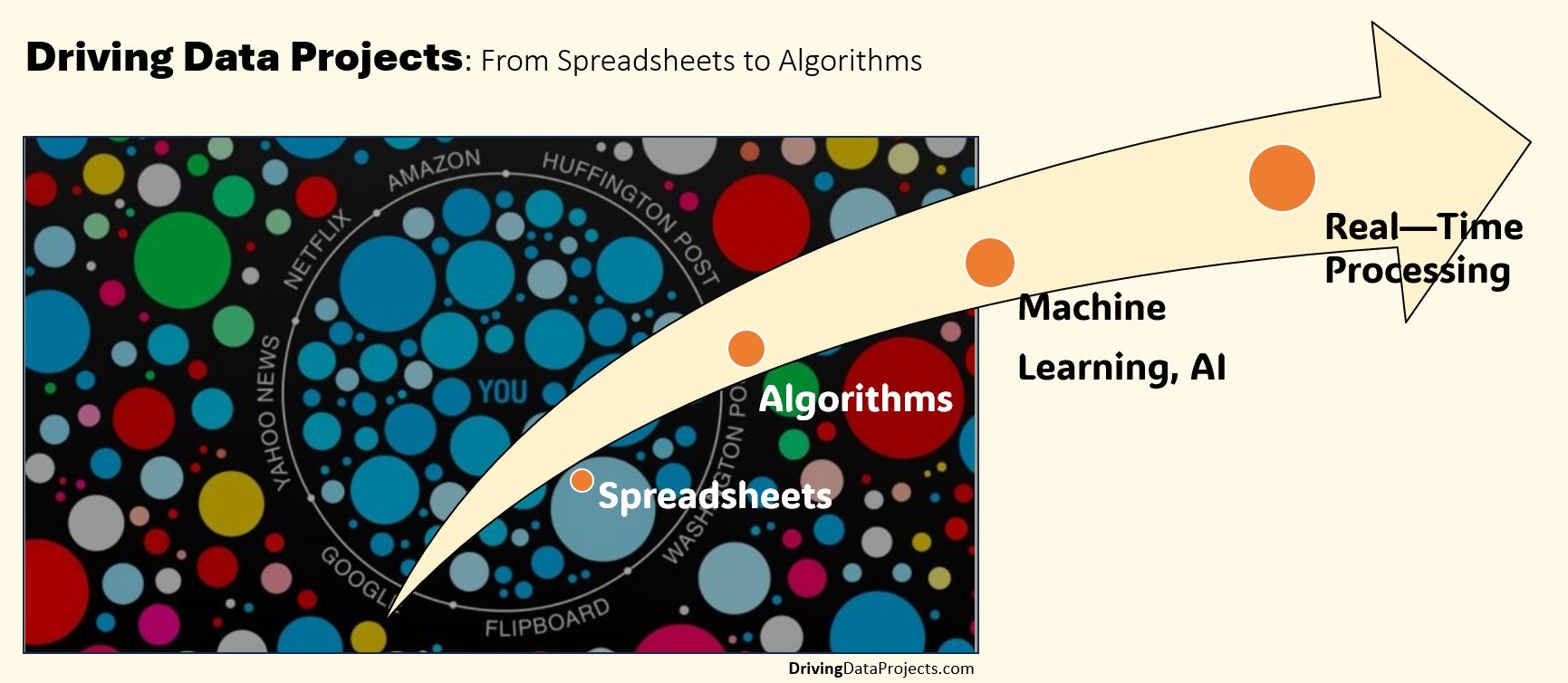I read somewhere that over 80% of adults want to write a book, but only 3% ever get to 'The End' of a draft. That means that 97% of people who want to write a book never finish.
Stats like that make accomplishments like getting my “author’s box” of books all the more rewarding.
Read MoreWhen driving data projects, you will encounter business stakeholder challenges that often go unspoken. This is not always because people hold back but because they don't fully know how to vocalize their constraints.
If they can't directly address their requirement, chances are we can't either. To hear others' speech, we start by asking questions from different perspectives.
Read MoreThe transition from traditional spreadsheets to sophisticated data management and analysis algorithms represents a significant evolution that has revolutionized how businesses process and leverage information. Algorithms have reshaped the landscape of data-driven decision-making. Facebook's filter bubble is an early example of a machine learning system individualizing the user experience based on user patterns.
Read MoreEmployees have been encouraged to ‘automate their roles’ to demonstrate self-direction and continuous learning. In the past, an employee's skills, motivation, and business interests determined the pace of change. Soon, the pace may be beyond their control, risking job loss before they can adapt to consider the next set of problems. If they can’t find problems faster than the pace of automation, they are not adequately prepared for transition.
Read MoreWe often consider digital technologies like data platforms, AI, and copilot features as tools. But if we're rethinking the future of work and the future of careers and companies, it's helpful to think of these things as augmenting our efforts. For a copilot in particular, it becomes a junior coworker or maybe a more senior co-worker as the AI skills get better.
Read MoreAs we continue to drive data projects, familiar challenges begin to present themselves. By observing, we can become better diagnosticians of systemic issues. Learn what to avoid and how to navigate them better.
Read MorePeople who work in data management are particularly dedicated problem solvers. They are committed to the mission in a way that makes them want to make the initiative successful. Most examples featured in the book reflect what happens in a specific type of data project -- a team-based project with stakeholders recruited from across the organization, including outside partnerships.
Read MoreChange management wouldn’t be so hard if it weren’t for…the people. Open issues or objections left unresolved today cost time down the road. Suppose work starts before these concerns are mitigated. Stakeholders might get frustrated or begin to hold back their participation. Work produced might have difficulty getting implemented. Buy-in realizes impact.
Read MoreUntil an organization is willing to invest in its data capabilities, aligning data resources to answer complex business questions will be like riding a bicycle to chase a Formula One racer and never catching up. Scoping project opportunities well is about building enough trust to eventually scale resources. While a single project manager can accomplish some initiatives, most data projects require multi-disciplinary resources to execute.
Read More





